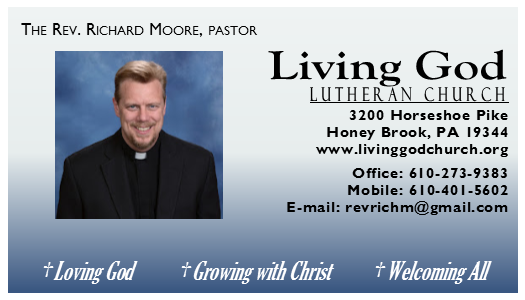Matthew 6:27
And which of you by being anxious can add a single hour to his span of life?
There's really nothing that compares to parenting.
I always find it comical when I hear a young couple, pregnant with their first child, making plans for things they are going to do after the baby comes. It's funny because once the baby comes, all of those plans are most likely going to need dramatic adjustment. There's no way a person can be prepared for parenting until they are actually parenting. You see them looking all haggard, sleep-deprived, and you can tell at just a glance the toll that the little bundle of joy is taking on their life...let alone their plans. Parents learn through experience that survival means accepting that you are no longer in control of your time, calendar, or energy. No, as a parent you become a servant to your child, and life is turned upside down in an effort to care for the one who is totally dependent upon you.
I have three sons. The youngest was adopted at 18 months old. I remember staying up through the night helping my son adjust to his new bed, new surroundings, new everything. For about a month he hardly slept at night, so neither did I. Stressful questions flowed constantly. Am I doing the right thing? Is he eating right? Is he sleeping right? Should I call the doctor? The fact that he was adopted at 18 months old meant that I even worried about things I will never know about the first months of his life. Now, he is six, and I worry about all sorts of other things.
I don't think raising older children is really any less stressful. My other two are step-sons from my wife's previous marriage. So, my experience with parenting is that of having both a young child and teenagers at the same time. I've learned that parents can lose just as much sleep worrying about their older children as they do when they were up all night with the little ones. How will we pay for college? Am I too strict or not strict enough? Where are they? Why don't they call me back? Who are they hanging out with? What are they doing? Are they making good choices?
Worry feels like holding your breath.
Our heavenly Father allows us to exhale, and breath a little easier. Jesus says, "Who of you by worrying can add a single hour to his life?" The other side of the same coin is, "Who, by worrying, can add a single hour to your child's life?" As a parent, I am going to worry. It's an unwritten promise. But, trusting that God has all things in His control, I find the grace I need. I can do my best and trust in God for the rest. I am never able to be in control. Parenting is a process of gradually letting go of control of our kids, and trusting them into God's control.
It helps to remember that God takes the long view about parenting, or developing people. Consider the way He worked with Moses. Throughout his entire life God was there with Moses, raising him into the person he became. From watching over the baby in the basket, through revealing His almighty power in plagues and the red sea, teaching him obedience with the ten commandments, raising up helpmates when he needed them, and finally showing him how to be graceful when he saw the promised land at the end of his life. Moses isn't the only one. Think of people like Jacob, Joseph, Noah, David...all were people parented by God through life. From early on in their life, God claimed them, and then raised them up through every trial they faced. God takes a long view of life and parenting. Our worry is to do with the short view.
When your heart gets heavy with the burdens of life and you find yourself losing sleep or worrying, remember that you were claimed by God the day you were baptized. Remember that your kids were claimed by God as well. Consider the long view of life, and trust that God has all things in control.
Now...exhale! :-)
Prayer
Heavenly Father, you watch over all your children. Watch over my family this day and raise them through life to accomplish your will. In Jesus' name. Amen
Do you enjoy reading this blog?
If so, please consider making a donation to support this ministry.
Click HERE to learn more.
Thanks!








